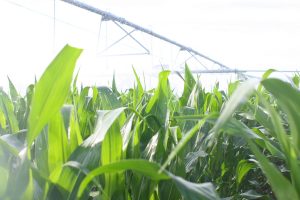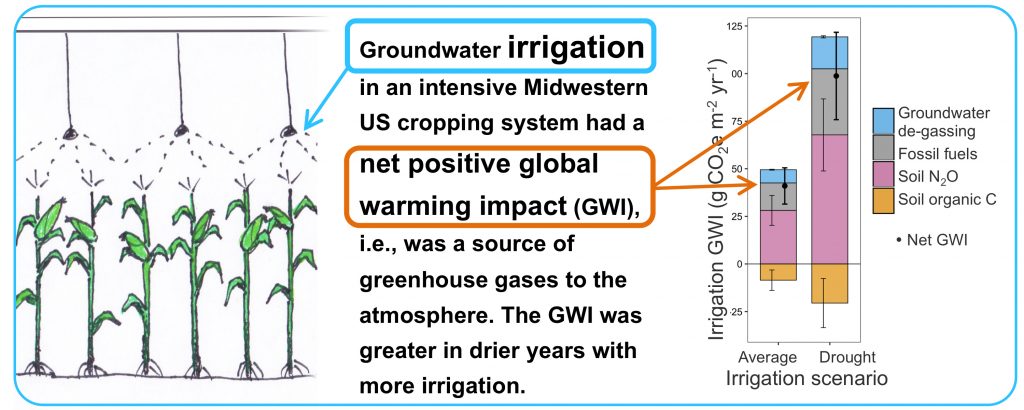
A paper by former KBS graduate student Bonnie McGill, along with Steve Hamilton, Neville Millar, and G. Philip (Phil) Robertson, was recently published in Global Change Biology. The study focused on how irrigation affects greenhouse gas emissions from croplands, based on research conducted at KBS’s Long-Term Ecological Research site.
This is the first irrigation study to account for carbon dioxide and nitrous oxide degassing from supersaturated groundwater, and this is the first accounting for an irrigated system in the upper Midwest where irrigated cropland is rapidly expanding.
The research found that the carbon-sequestering rainfed system switched to a net source of emissions with irrigation. But when the irrigated system’s increase in yield was accounted for, emissions per unit yield were not very different between the rainfed and irrigated systems. If this increased yield helps avoid land conversion to cropland elsewhere, it may help avoid environmental costs such as greenhouse gas emissions. However, impacts on water resources will still need consideration.
Read the full paper here and visit Bonnie’s blog post to learn more about the carbon footprint of irrigation.
McGill is currently continuing her research as the David H. Smith Conservation Research Fellow at the University of Kansas.


A legacy of conservation; a commitment to sustainability.
3700 E. Gull Lake Drive
Hickory Corners, MI 49060
(269) 671-5117
info@kbs.msu.edu